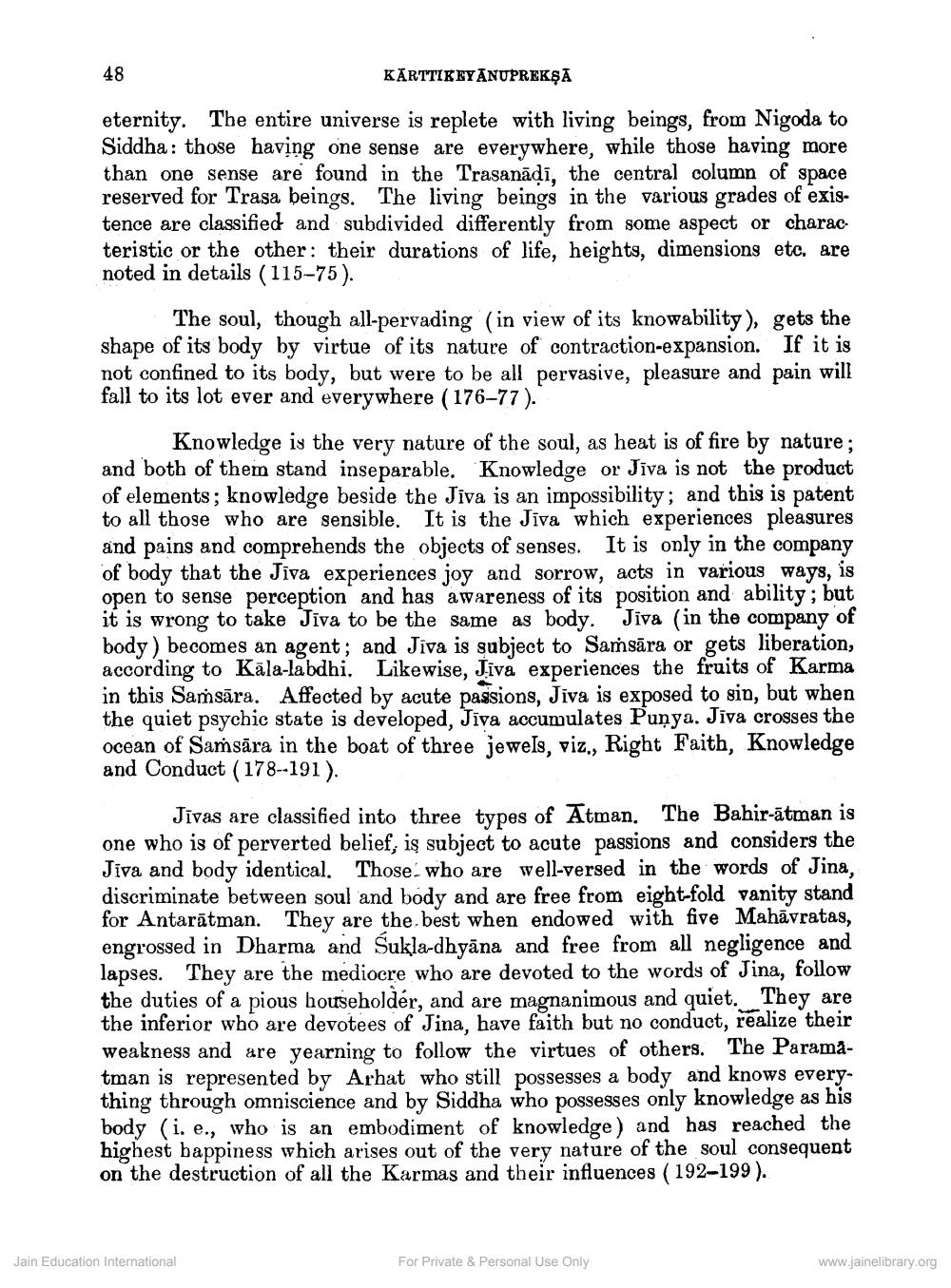________________
48
KĀRTTIKEYANUPREKŞA
eternity. The entire universe is replete with living beings, from Nigoda to Siddha: those having one sense are everywhere, while those having more than one sense are found in the Trasanādi, the central column of space reserved for Trasa beings. The living beings in the various grades of existence are classified and subdivided differently from some aspect or charac teristic or the other their durations of life, heights, dimensions etc. are noted in details (115-75).
The soul, though all-pervading (in view of its knowability), gets the shape of its body by virtue of its nature of contraction-expansion. If it is not confined to its body, but were to be all pervasive, pleasure and pain will fall to its lot ever and everywhere (176-77).
Knowledge is the very nature of the soul, as heat is of fire by nature; and both of them stand inseparable. Knowledge or Jiva is not the product of elements; knowledge beside the Jiva is an impossibility; and this is patent to all those who are sensible. It is the Jiva which experiences pleasures and pains and comprehends the objects of senses. It is only in the company of body that the Jiva experiences joy and sorrow, acts in various ways, is open to sense perception and has awareness of its position and ability; but it is wrong to take Jiva to be the same as body. Jiva (in the company of body becomes an agent; and Jiva is subject to Samsāra or gets liberation, according to Kāla-labdhi. Likewise, Jīva experiences the fruits of Karma in this Samsāra. Affected by acute passions, Jiva is exposed to sin, but when the quiet psychic state is developed, Jiva accumulates Punya. Jiva crosses the ocean of Saṁsāra in the boat of three jewels, viz., Right Faith, Knowledge and Conduct (178--191).
Jīvas are classified into three types of Atman. The Bahir-ātman is one who is of perverted belief, is subject to acute passions and considers the Jiva and body identical. Those who are well-versed in the words of Jina, discriminate between soul and body and are free from eight-fold vanity stand for Antarātman. They are the best when endowed with five Mahāvratas, engrossed in Dharma and Sukla-dhyāna and free from all negligence and lapses. They are the mediocre who are devoted to the words of Jina, follow the duties of a pious householder, and are magnanimous and quiet. They are the inferior who are devotees of Jina, have faith but no conduct, realize their weakness and are yearning to follow the virtues of others. The Paramatman is represented by Arhat who still possesses a body and knows everything through omniscience and by Siddha who possesses only knowledge as his body (i. e., who is an embodiment of knowledge) and has reached the highest bappiness which arises out of the very nature of the soul consequent on the destruction of all the Karmas and their influences (192-199).
Jain Education International
For Private & Personal Use Only
www.jainelibrary.org




